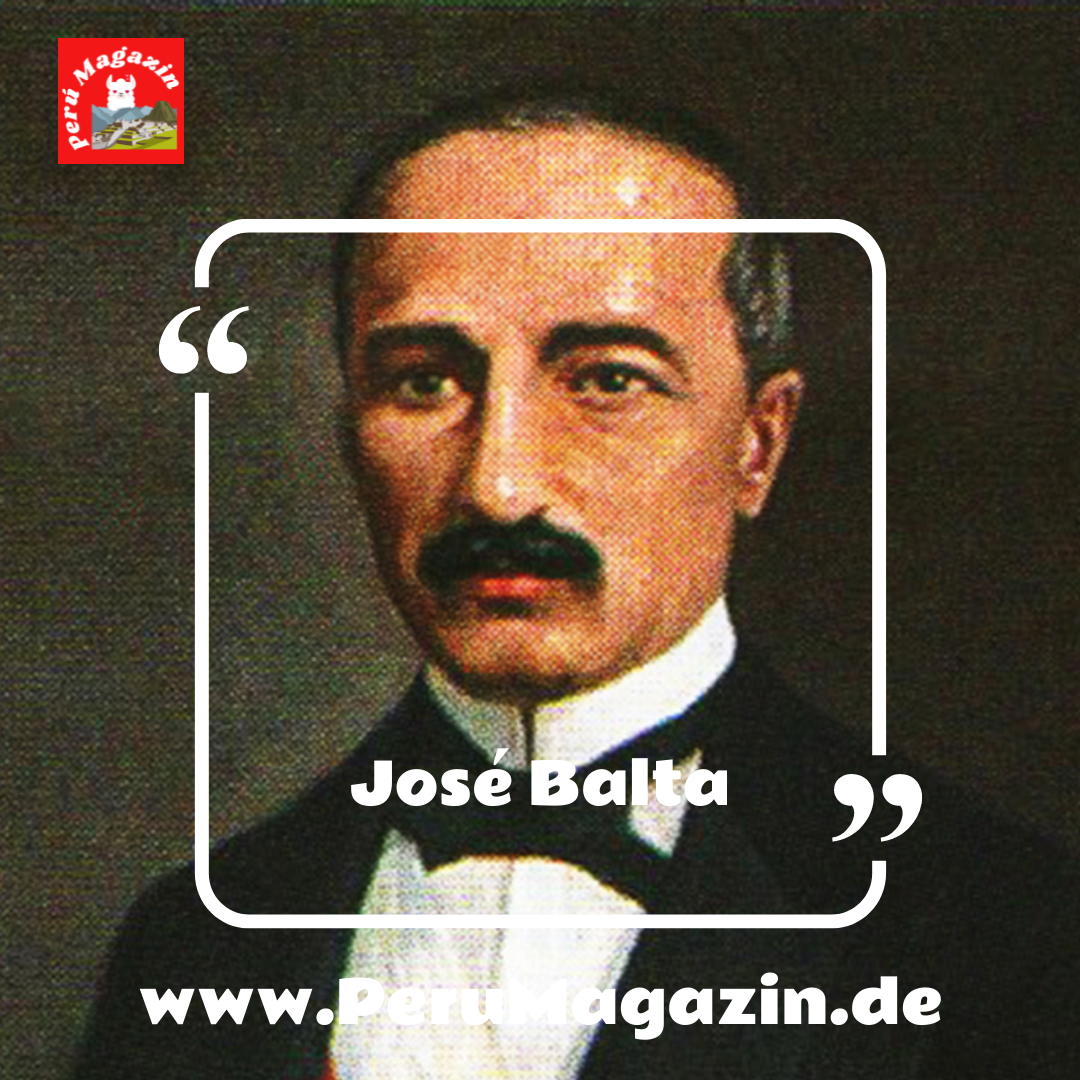
José Balta: Presidency and Legacy in Peru

Peru, a country of breathtaking scenic diversity and a rich cultural history, has seen numerous political leaders over the centuries. One of these historical figures was José Balta, who was President of Peru from 1868 to 1872. In this post we will take a closer look at his life, his presidency and his legacy.
The early years and the rise
José Balta was born on April 25, 1814 in Lima, the capital of Peru. He came from a respected and wealthy family and had access to education and privileges from an early age. This background paved the way for his later political rise.
Balta began his political career at a young age and joined the Liberal Party. The liberals represented progressive ideas and sought reforms in Peru. He soon made a name for himself in political circles and quickly rose through the ranks.
The presidency of José Balta
In 1868, José Balta finally achieved the highest political office in Peru, that of the presidency. His term of office was to be marked by political significance and far-reaching changes for the country.
One of the most striking achievements of his presidency was the construction of the first railway in Peru. This connection between the port of Callao and Lima revolutionized transport and trade in the country. Freight and people could now move more quickly and efficiently between the two cities. This project cemented Balta's reputation as a promoter of modernization and progress.
However, Balta's presidency was not without challenges. His government faced significant financial difficulties. To finance his ambitious infrastructure projects, he took on significant foreign debt. This led to growing economic burdens and public discontent.
Political unrest and the fall
Growing debt and allegations of corruption in Balta's government led to political instability. Opposition groups and political opponents called for his resignation. The unrest reached its peak in 1872 when Nicolás de Piérola led a successful coup against Balta.
The coup marked the end of José Balta's presidency. He was overthrown and murdered shortly afterwards. This tragic end reflects the intensity of the political conflict in Peru at that time.
The legacy of José Balta
Despite his controversial end, José Balta left a significant legacy in Peru. His ambitious infrastructure project, the railway, remained a milestone in the country's history. The railway line between Callao and Lima laid the foundation for the future development of Peruvian transportation.
Balta is often seen as a promoter of modernization and progress in Peru. His efforts to improve transportation and trade opportunities contributed to the country's economic development. Despite the political turmoil during his presidency, his commitment to progress was undeniable.
The lessons from history
The story of José Balta and his presidency in Peru offers important lessons. It illustrates how political ambitions and economic challenges are linked. The ambitious desire for modernization and progress can be admirable on the one hand, but can also lead to financial problems and political instability on the other.
Politics is rarely black and white, and historical figures like Balta are not easy to judge. His administration had both successes and weaknesses, and his political career reflected the complex realities of the time.
The meaning of Balta today
Today, monuments and historical records in Peru commemorate the presidency of José Balta. The first Peruvian railway is a symbol of his contribution to the modernization of the country.
Peru has seen many political leaders over time, and José Balta remains an important figure in the country's history. His legacy is a reminder that political leadership and change in a society are often shaped by complex factors.
Final Thoughts
The story of José Balta and his presidency in Peru is a fascinating chapter in the country's history. His pursuit of modernization and progress has had a lasting impact on Peru. At the same time, his political fall shows the challenges and controversies that can accompany political leadership.
The lessons of Balta's history are as relevant today as they were then. They remind us that political decisions and economic developments are closely linked and that political leaders often face complex challenges.
#Peru #History #JoséBalta #Politics #Modernization #Presidency #PeruMagazine #WeLovePeru #patop #patopversand

Leave a comment